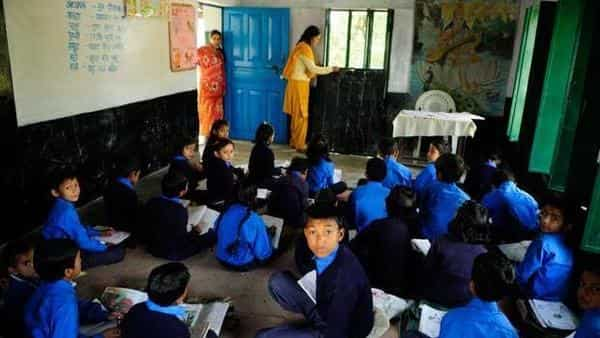Description

Copyright infringement not intended
In News
- On the occasion of Teacher's Day, the Prime Minister highlighted that under the Pradhan Mantri Schools For Rising India (PM-SHRI) Yojana, the government will develop and upgrade14, 500 schools across India.
- The Prime Minister stated that the PM-SHRI yojana would benefit lakhs of students across India and also support the implementation of the National Education Policy (NEP).

New Education Policy-2020
- The National Education Policy (NEP) 2020 was released in July 2020.
- NEP 2020 will replace the National Policy on Education, 1986.
- It aims at ensuring Universal Access at All Levels of schooling from pre-primary school to Grade 12.
- It Ensures quality early childhood care and education for all children between 3-6 years.
- It introduced a New Curricular and Pedagogical Structure (5+3+3+4).
- 5 years of foundational stage (for ages 3 to 8).
- 3 years of preparatory stage (for ages 8 to 11 or classes 3 to 5).
- 3 years of middle stage (for ages 11 to 14 or classes 6 to 8).
- 4 years of secondary stage (for ages 14 to 18 or classes 9 to 12).
- No strict separations between arts and sciences, between curricular and extracurricular activities, and between vocational and academic streams.
- To establish a National Mission on Foundational Literacy and Numeracy.
- Promoting multilingualism and Indian languages.
- Reform in Assessment of Board Exams. Setting up a new National Assessment Centre, PARAKH (Performance Assessment, Review, and Analysis of Knowledge for Holistic Development).
- Special priority is given to socially and Economically Disadvantaged Groups.
- A separate Gender Inclusion fund and Special Education Zones for disadvantaged regions and groups;
- A transparent process for recruitment of teachers and merit-based performance assessment.
- Ensuring availability of all resources through school complexes and clusters.
- Setting up of the State School Standards Authority.
- Promoting Vocational education in school and higher education systems.
- Increasing Gross Enrolment Ratio (GER) in higher education to 50%.
- Multidisciplinary Education with multiple entry/exit options.
- Establishment of Academic Bank of Credit
- Setting up of Multidisciplinary Education and Research Universities.
- Setting up of the National Research Foundation.
- Expansion of open and distance learning to increase GER.
- Teacher Education - 4-year integrated stage-specific, subject-specific Bachelor of Education
- All higher education institutions (HEIs) will be restructured into 3 categories:
- Research universities focus equally on research and teaching.
- Teaching universities focus primarily on teaching.
- Degree-granting colleges primarily focused on undergraduate teaching.
- Multiple mechanisms with checks and balances will combat and stop the commercialization of higher education.
- All education institutions will be held to similar standards of audit and disclosure as not-for-profit entities.
- The Centre and the States will work together to increase the public investment in the Education sector to reach 6% of GDP at the earliest.
- Strengthening of the Central Advisory Board of Education to ensure coordination to bring overall focus on quality education.
Challenges in Indian Education System
- India has achieved universal enrolment at the elementary level. This is a great achievement, but getting Students to School is only the beginning of human Capital formation.
- Poor quality of facilities, Shortage of qualified faculty.
- Out of date Curriculum, Limited university-industry Partnership.
- Indian-origin Scientists have won the Nobel Prize, but post-independence work done in India has not led to a Science novel. If Indians Studying and working abroad can have a great impact, then obviously the problem has to do with our Systems of education and research.
- Broken Governance System. There are few rewards for being a good teacher and few Punishments for being a Careless one. Need more effective and accountable governance Systems.
- The greed of Private Colleges to earn the maximum from every Student puts traumatic Pressure on Students which results in mental breakdown.
- More girls than boys drop out of School. While boys drop out to work, girls usually Stay at home and help with domestic Work. Social Conception of gender roles is an important factor.
- Learning loss due to pandemics and the digital divide.
Steps taken by the Government
- The 86th Constitution Amendment provides the Fundamental right to free and compulsory education under Article 21A includes a Common education System where the “rich and Poor are educated under one roof".
- Rashtriya Uchchatar Shiksha Abhiyan provides funding to eligible State higher educational institutions.
- Declaration of Educational Institutions as institutions of Eminence, to provide world-class education to Indian Students within the Country.
- Creation of Higher Education Financing Agency, for high-quality infrastructure in Premier educational institutions.
- National Institution Ranking Framework for ranking our higher education institutions.
- GIAN Initiative invites distinguished academicians, entrepreneurs, scientists, and experts from premier institutions across the world to teach in higher educational institutions in India.
- Artificial Intelligence (AI) can be used to Provide Personalised instructions based on Student needs.
- The government needs to work on improving digital infrastructure and ensure that students have access to mobile phones or laptops.
- SWAYAM Portal for Online Courses.
- SWAYAM Prabha Provide HD educational Channels through DTH on a 24X7 basis.
- Sodhganga to develop a national repository of universities in India, and digital Study material for higher education.
- Samagra Shiksha Scheme to ensure inclusive and equitable quality education at all levels of school education.
- The government is encouraging Open Online Courses via Swayam Platforms So that Students Can have access to quality lectures online.
https://www.pib.gov.in/PressReleasePage.aspx?PRID=1856885
https://t.me/+hJqMV1O0se03Njk9













